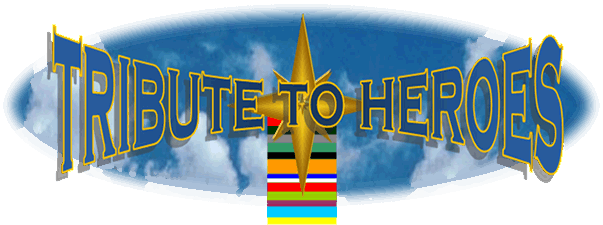My Father's War
MY FIRST POSTING....
….was to the Royal Marine detachment on the cruiser HMS Sheffield, which I joined in September 1937. In December 1939, three months after the war began, we were sent to join HMS Ajax, Exeter and Achilles in the South Atlantic. These ships had been involved in chasing down the German pocket battleship Graf Spee. By the time we arrived, however, the German ship’s crew had already been forced to scuttle her at the River Plate in South America. We then returned to the United Kingdom to repair propeller shafts that had been damaged during our rapid cruise across the South Atlantic. After we completed repairs, Sheffield was sent to join the northern patrol, which operated between Iceland and Greenland. Following patrol duty, Sheffield and her crew were assigned to escort merchant convoys to Murmansk. We spent Christmas 1939 iced in at Murmansk. I remember that Christmas well because our dinner consisted of corned beef, which was not very pleasant.
August 1940
In August 1940 we formed, with HMS Renown, Ark Royal and the Fourth Destroyer Flotilla, the famous Force H, at Gibraltar. There we were responsible for escorting convoys bringing vital supplies to Malta, and on most trips we were attacked by German and Italian aircraft. During this time, we met up with a number of other ships and became involved in the Battle of Cape Spartivento on November 27. Most of 1940 was spent on convoy duties with occasional clashes with the Italian fleet and aircraft.The next year started off more or less as 1940 had left off, but early in the morning of May 24, 1941, we were ordered to steam northward with all possible speed.

Set Sail
As we sailed, we ran into really bad weather, and the destroyers of the Fourth Destroyer Flotilla had to leave us, all their ships were getting bashed and their superstructure was getting badly damaged. This left Renown, Ark Royal and Sheffield headed through the storm. We were then told by our captain that the reason for our hurried departure from Gibraltar was that the German battleship Bismarck and her cruiser escort Prinz Eugen had broken out of Norwegian waters and were threatening to sail out into the Atlantic. The massive German battleship had already engaged HMS Hood and hit Repulse a couple of times as well. One of our ships was shadowing Bismarck, but the Germans were able to escape observation. Finally, on May 26, the German battleship was spotted by a Consolidated PBY Catalina reconnaissance plane, and it became evident that she had parted from her escort. It was anticipated that Bismarck, would make for a French port. The only force that stood in her way was now Force H, which included Sheffield. My ship was detached from the force and ordered to shadow Bismarck.
Ark Royal Attack
We stayed so close to the Germans that when the Ark Royal’s planes finally launched their attack, they fired their first torpedoes at us rather than the enemy. Fortunately they missed us, and the remaining planes then went on and successfully hit Bismarck, who knew she was being shadowed, and after being damaged by Ark Royal’s planes, generated a smoke screen to mask her from further attack. She then emerged from the smoke screen firing her 16-inch shells at us. One of the shells hit us and showered the Sheffield’s upper decks and superstructure with shrapnel. Eleven sailors were killed during this attack and 22 were wounded. With other British ships moving in for the kill, Sheffield was ordered to disengage. We now travelled home, on the way burying our dead at sea. The day after returning to port, however, we were ordered out to intercept and sink one of Bismarck’s supply ships – which we did. We picked up 98 survivors from this ship, and we later turned them over to a platoon of Polish soldiers. After the last part of the battle to sink Bismarck, the ship’s company paid off. I had been on Sheffield from September 1937 to April 1942.
Slapton Sands
After leaving the ship, I reported to the Royal Marine base at Chatham. In December I was posted to HMS Submassive, and it was during a landing exercise that I was present for the disaster at Slapton Sands on April 27, 1944, when hundreds of Americans from the 4th Infantry Division were killed during an unexpected attack. All of us who were present were made to sign the Official Secrets Act preventing us from talking about what we had seen.I brought reinforcements into the invasion beaches on D-plus-2, and in May 1945 I was transferred again and became a recruit instructor, a post in which I remained until the end of the war. Following the war, I stayed in the Royal Marines and served in Malta, Palestine, Egypt, Hong Kong and Malaya. I retired from the Royal Marines in December 1958.
EDITOR'S NOTE:
Frank Mustow died on September 1, 1991. This account was provided by his son, David Mustow. ( WWII Magazine – July 2002 )
WAR RECORD
NAME: FRANK MUSTOW: DATE ENTERED SERVICE: JANUARY 6, 1936
CAMPAIGNS:
Battle of the Atlantic
Battle of North Africa
Home defence
Normandy
DECORATIONS:
Long and General Service Medals
1939-1945 Star
Atlantic Star
Africa Star
Arctic Star
Defence Medal
War Medal
Naval General Service Medal
Coronation Medal


